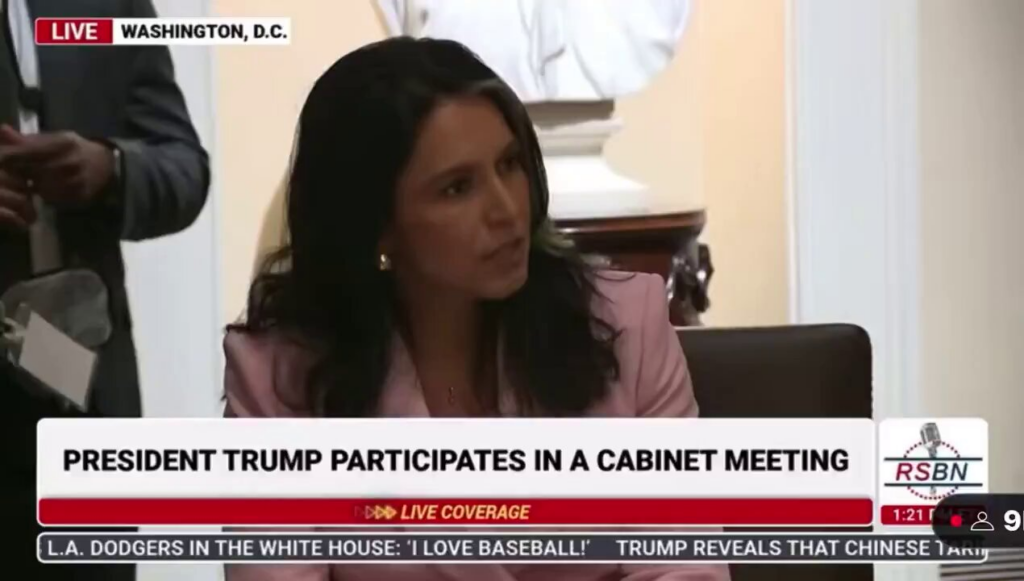Electronic voting systems — essentially computers programmed to count votes — have been in use for decades. But just as long as they’ve existed, concerns over their security and susceptibility to hacking have loomed large.
Now, in a major revelation, Tulsi Gabbard, who currently serves as Director of National Intelligence under President Donald Trump, has publicly confirmed that there is evidence showing electronic voting machines have been tampered with to influence U.S. election results. The announcement was reported by The Gateway Pundit, which called the disclosure “jaw-dropping.”
Gabbard stated:
“We have evidence of how these electronic voting systems have been vulnerable to hackers for a very long time and vulnerable to exploitation to manipulate the results of the votes being cast, which further drives forward your mandate to bring about paper ballots across the country so that voters can have faith in the integrity of our elections.”
This aligns with an executive order from President Trump mandating election officials to adopt paper ballots and reduce dependence on electronic-only systems.
The report emphasized that her statement confirms long-held suspicions among conservatives — that America’s election infrastructure may have already been compromised by digital vulnerabilities.
These concerns aren’t new. During the DEF CON cybersecurity conference last year, experts gathered in the “Voting Village” to test the security of voting machines expected to be used in future elections. Over three days, cybersecurity professionals and ethical hackers demonstrated how easily many machines could be infiltrated. Harri Hursti, co-founder of the Voting Village, remarked that the number and type of weaknesses uncovered were consistent with past years, signaling a troubling trend of unaddressed flaws.
Scott Algeier from the Information Technology-Information Sharing and Analysis Center noted the complexity of the issue:
“Even if a vulnerability is identified now, it’s not easy to push out a fix to state and local election officials in time for an election. This isn’t like getting a routine software update from Microsoft — it’s much more complicated.”
History has already shown these threats are real. In 2017, a hacker at DEF CON successfully breached a voting machine in just 90 minutes and was able to manipulate it remotely.
More recently, in 2023, Dr. J. Alex Halderman, a professor at the University of Michigan, testified in a Georgia courtroom that Dominion Voting Systems were indeed exposed to significant cybersecurity threats, further validating long-standing fears.
With growing bipartisan concerns and mounting evidence, Gabbard’s statement may serve as a turning point in the national debate over election security — and reignite calls for paper-based voting systems across the country.

